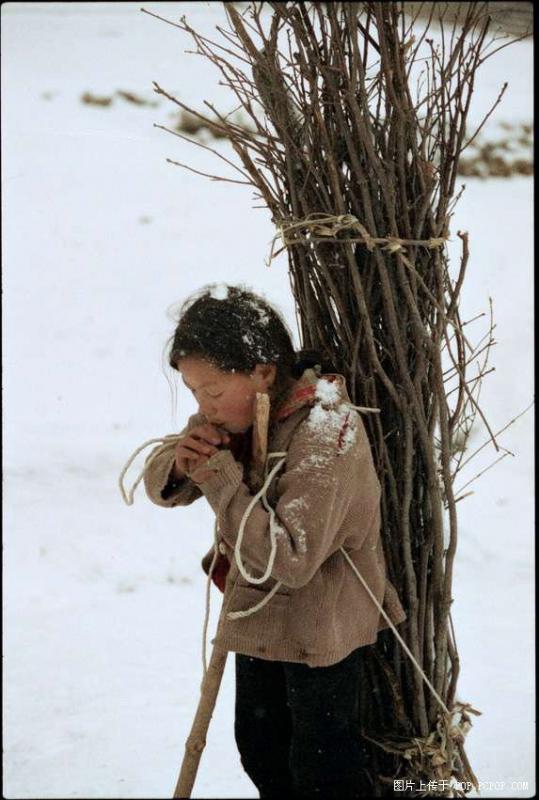Serendip is an independent site partnering with faculty at multiple colleges and universities around the world. Happy exploring!
feminism
A Link Spam (3/1/12) Under Construction! Add yours anyway!
Links for your perusal that may or may not be relevant to class. Add your own! No seriously, add your own.
The H-Word was a series on Bitch Magazine's blog done by a former sex-worker on a variety of issues. I haven't read all of the articles, but I thought the ones I did read were really interesting and worth reading. I would suggest reading most of their series, actually, so go check it out.
Prism Comics is the comic book company mentioned in class.
-There was a very interesting exhibit at Drexel last fall (fall '11) called Half the Sky: Women in the New Art of China full of Chinese women artist's work. I remember reading interviews/articles quoting the artists themselves and how they interacted with/thought of feminism, but I can't remember where I left it at the moment.
Will be edited later. This computer doesn't have my zillions of bookmarks. Also, why don't we have more conversations here? I understand I'm a broken record, but really I just like talking about things with people and this is a convenient (sort of?) way to do it. I know we have more thoughts in class than what we say.
BRING YOUR OWN MUSIC, VOLUME 1
I have known two things for a while:
1. I like music, and I have feelings about it
and
2. I like feminism, and I have feelings about it
I realized in class that even if we don't end up with classes dedicated to music and feminism/other cultural movements, I would really love the opportunity to talk about it incessantly with other people. And then I realized we have Serendip and good ideas just abounded.
A SERENDIP FEMINISTY PLAYLIST, DAY/WEEK/INSTALLMENT 1
PROTOCOL: Anyone can offer up a playlist, preferably with links to where we can actually listen to the music. If there are music videos, please post them! Even if it's not the official video and just someone's project, if you like it share it! This particular part does not have a theme, but if someone is inspired to do that sort of thing that would also be totally sweet. The music you post does not necessarily have to be explicitly feminist, it can talk about issues you think are important, or maybe even just have certain lyrics you really respond to. You can also edit and post multiple times, because music is wonderful and I don't think anyone is going to get angry if you add more. If you feel like adding commentary that would also be really cool, but feel free to just post the links and let us ruminate on our own. Interpret this entire activity as you will, there is no "proper model".
My initial contribution:
"Persepolis:" Adding Feminism to the Graphic Novel
“Persepolis” tells the story of Marjane Satrapi’s childhood, adolescence and transition into adulthood set on the changing backdrop of her cultural location and identity[1]. Through her personal story, Satrapi educates her audience on what it means to her to be an Iranian girl and woman, the political situation in Iran at the time of her upbringing, and how she often clashed with her surroundings and fought back against oppressive and simplistic ideology encountered in both Iran and Europe. As inspiration for her graphic novel, Satrapi cites “Maus” by Art Spiegelman[2]. While in some ways “Persepolis” is very similar to “Maus,” the changes that Satrapi has made can be seen as her way of creating a feminist text out of an uncommon genre – the graphic novel.

If she is an insider, what about me?

The feeling of reading Three Guineas seems a little bit awkward for me. Virginia Woolf asked many questions and answered them herself in the book, trying to make her writing more conversational and interactive. However I had a feeling of being excluded by the conversation. As a white woman from higher class, Virginia Woolf sent her invitations to the “outsiders”, yet I feel the ‘outside’ she defined is still the “inside” for most of us who read the book. With priorities of the rich, she could say that poverty, chastity, derision, and freedom from unreal loyalties are “four great teachers of the daughters of educated men”. However, does she really understand what the “outsiders” need and want?


literal inscriptions
How does form inform our reading of texts as successfully feminist? (I am aware of my own biases in the meaning of “success,” but for the purposes of this exercise, I will define success as elliciting a response in those who engage with the material that incites emotion of some kind, in this case an emotional response that leads us to seek to support feminism). Typically feminsts forms have included poetry and literature, but these forms are somewhat tied to conceptions of women as delicate and admirers of that which is flowing, flowering, beautiful. Other options include co-opting the form of the patriarchal institutions which reinforce sexual hierarchies, such as academic work and dense theory couched in even denser language. This kind of feminism is far from accessible and has a specific class (and typically race) bias.
feminist perspective on sex work
Feminist perspectives on prostitution
There are many feminist perspectives on the issue of prostitution; some think it is bad for female equality, but should be decriminalized, some think it should be legal, and others think it should be illegal. Feminists like Pateman, Satz, and Shrage think prostitution isn’t morally wrong, but given the current social and economic situation women are in, it continues giving women subordinate status. Other feminist outlooks against prostitution come from taking issue with the heavy costs sex workers pay, like risk of violence and sexually transmitted diseases. An argument for legalizing sex work is that it lets women build careers for themselves, which can help build self-esteem and empowerment. Pro-sex workers think that saying that ‘prostitution’ is an issue for women, takes away from the reality of societies where other structures lead to oppression of women. I’ve found that there are rarely feminists who identify as purely for or against sex work; the issue is too complex so even if someone thinks that prostitution hurts the female goal of equality, they still might think it should be legal.

The Outsiders' Society and Freaks
Virginia Woolf calls every woman to join a society that is separate from the society in which men operate – the Outsiders’ Society. She says that we cannot operate within the society of men, because there is “something in the conglomeration of people into societies that releases what is most selfish and violent, least rational and humane in the individuals…” (124). The Outsiders’ Society, Woolf states, is “the kind of society which the daughters of educated men might found and join outside your society but in co-operation with its ends” (126). She indicates that there is power in being outside of the insiders’ society: “the power to change and the power to grow… can only be preserved by obscurity…” (135). Existing and working in this Outsiders’ Society will give women power by obscuring them and separating them from the “limelight which paralyzes the free action of the human faculties and inhibits the human power to change and create…” (135). Virginia Woolf believes that being outside of men’s society will “shroud” women “in darkness.”
Last semester I took a course entitled “Reading Popular Culture: Freaks” with Suzanne Schneider, in which we discussed at length what it means to me marginal and why people in the so-called “Outsiders’ Society” are put there in the first place. The idea of existing outside of society according to what we discussed in Freaks is very different from what Virginia Woolf seems to think about being an “outsider.”

Girl Scouts and Feminism
February 3rd, 2012
Girl Scouts and Feminism
When I was seven, I joined the Girl Scouts. I wanted to be a part of the seemingly exclusive group that my friends bragged about, and do fun things like play games and go camping. When my parents signed me up and I went to my first Brownie meeting, I was excited. Unfortunately, the troop leader—one of my friends’ moms—only had a few arts and crafts and a boring activity. After the activity, she usually sent us out to the playground, which is where I learned the “exclusive” Girl Scout traditions of jump rope songs and hand games like “Miss Susie Had A Steamboat,” just like my mom had learned when she was a girl scout.
The Girl Scouts of America is a youth organization for girls in the United States and abroad that was formed in 1912 by Juliette “Daisy” Gordon Low in Savannah, Georgia. She assembled the first 18 scouts because “she believed that all girls should be given the opportunity to develop physically, mentally, and spiritually.” Their activities included hiking, basketball, camping trips, first aid and learning to tell time by the stars. Daisy Gordon Low wanted to enable girls to leave their restrictive home environments to perform community service and play games.
A Dinner Table: Eggs
At the beginning of this class we were shown The Dinner Party by Judy Chicago, an art display immortalizing women Chicago thought were the most influential to the feminist movement. I felt there were many problems with this kind of depiction, but after reading Three Guineas I felt an even greater negative reaction to it. Chicago's Woolfe plate made Virginia Woolfe seem like the climax of a great tradition of feminist thought- not an evolution in the scientific sense of the word, but a slow build up to a lauded, supposed-perfect feminist. And not just any kind of feminist, but a feminist explicitly defined by and given such status by her [white] ciswoman body. This hardly felt appropriate to me. Virginia Woolfe's writings exclude more than they embrace, and attempt to instruct women what they should do with themselves (to be what, precisely?) in a way that can be especially harmful. Why should she remain such an iconic representation of feminism when feminism as a movement, as a word, as a lifestyle and perception has moved beyond what she imagined or, maybe more importanty, deemed appropriate? There are, however, pieces of Three Guineas that I believe can still be found useful. So what is Virginia Woolfe now? Who is she meant to be to us?
I've thought about that, and I've come up with my own imagining of The Dinner Party. I consider this an initial draft of what it will become, and have many ideas for its next incarnations.

The Inside: History of women at Bryn Mawr College
In a class on gender and sexuality last semester, I focused my attention on transgender students at Bryn Mawr, and those that haven't been able to come to Bryn Mawr College because of their sex. Throughout the semester I met with administrators, deans, staff and students around campus trying to learn more about the school's policy on admitting transwomen as well as transmen. Following are the links to these works.
1) All "Women's" College
2) Moving towards a right relationship between Bryn Mawr
College and Transgender Students


